 John van de Laar gave an interesting persepctive on a 'religious movement' that has formed around the central ideas of the first Matrix movie.
John van de Laar gave an interesting persepctive on a 'religious movement' that has formed around the central ideas of the first Matrix movie.
I can certainly understand the appeal - after all, throughout history generations have always attempted to locate the sacred within the tools, symbols, and nomenclature of their contemporary culture. The Matrix seems to be so expressive of some of the existential questions, queries, and framing aspects of our reality (these include such issues as the relationship between humans and our technology, eternal existence in terms that we can understand, issues of good and evil etc.)
Some scientists have suggested that these issues may have a far greater influence, and in fact be truer than just sociology, theology, and psychology, could explain. Some others have suggested it is in fact nothing more than 'wish projection' (along the lines of Feuerbach and Freud's theory).
In short, every generation has a built in need to believe that there is more to life than just being born, living, and dying - we seek a transcendent truth (which you can read about in my Doctoral Thesis, by the way - please see the chapter on Neuroscience (chapter 3 I think it was) where I discuss the holistic and transcendent a-priori neural operators that are present in the human brain from birth). In our generation the 'mythology' of our time is intrinsically linked with technology (particularly those technologies that make our lives easier, and in some sense bearable).
A final perspective, which I think is the most rational of them all, is the perspective offered by Professor Cornel du Toit, who suggests that any duality that we create between ourselves and our technology is a false duality. Just think about it, your cell phone is not just an object that performs technological functions, it has become an integral part of your life. For many of us it extends our ability to communicate, it offers us a sense of security, connection with others, and for some (like myself) it even regulates how one lives one's life (e.g., my cell phone has a diary function that alerts me to appointments etc.). Another example cited by du Toit is contemporary banking. We have created both a hard technology (notes, coins, cards, ATM machines) and a soft technology (values, exchanges, commodities etc. which cannot be felt or weighed, or seen, but which have value). Just try to live your life without money and you will soon see how we have allowed a 'created' technology to become an integral part of our identity. How many people do you know whose identity is formed by what they earn, what they drive, and what they use?
I tend to agree with this - faith and technology are not separate realities that are discovering one another, they are complex interwoven system of creating and forming meaning. Both are dependent upon each other.
Anyway, enough of my 'ramblings'....
Read the article below for more on the concept of 'singularity':
Science fiction writer and mathematician Rudy Rucker takes a running swing at the idea of the Singularity, the moment in human history when we disassemble raw matter, turn it into "computronium" and upload ourselves to it, inhabiting a simulation of reality rather than real reality. It's a fine and provocative turn from our Mr Rucker, who has a fine and provocative and deeply weird and wonderful mind.
Although it’s a cute idea, I think computronium is a fundamentally spurious concept, an unnecessary detour. Matter, just as it is, carries out outlandishly complex chaotic quantum computations just by sitting around. Matter isn’t dumb. Every particle everywhere everywhen is computing at the maximum possible rate. I think we tend to very seriously undervalue quotidian reality...
This would be like filling in wetlands to make a multiplex theater showing nature movies, clear-cutting a rainforest to make a destination eco-resort, or killing an elephant to whittle its teeth into religious icons of an elephant god.
This is because there are no shortcuts for nature’s computations. Due to a property of the natural world that I call the “principle of natural unpredictability,” fully simulating a bunch of particles for a certain period of time requires a system using about the same number of particles for about the same length of time. Naturally occurring systems don’t allow for drastic shortcuts.
Link (via Futurismic)
By the way, my own doctoral research considered some of the theological issues in relation to these notions - you can download a copy of my Doctoral Thesis here (please see chapter 2). Two other superb books to read are:
The age of spiritual machines, and Are we spiritual machines. By Kurzweil.
Wiredlife - who are we in the digital age? By Jonscher.
Technorati tags: The Matrix, Singularity, Spiritual Machines, Ray Kurzweil, Dion Forster
 Monday, February 27, 2023 at 9:45PM
Monday, February 27, 2023 at 9:45PM 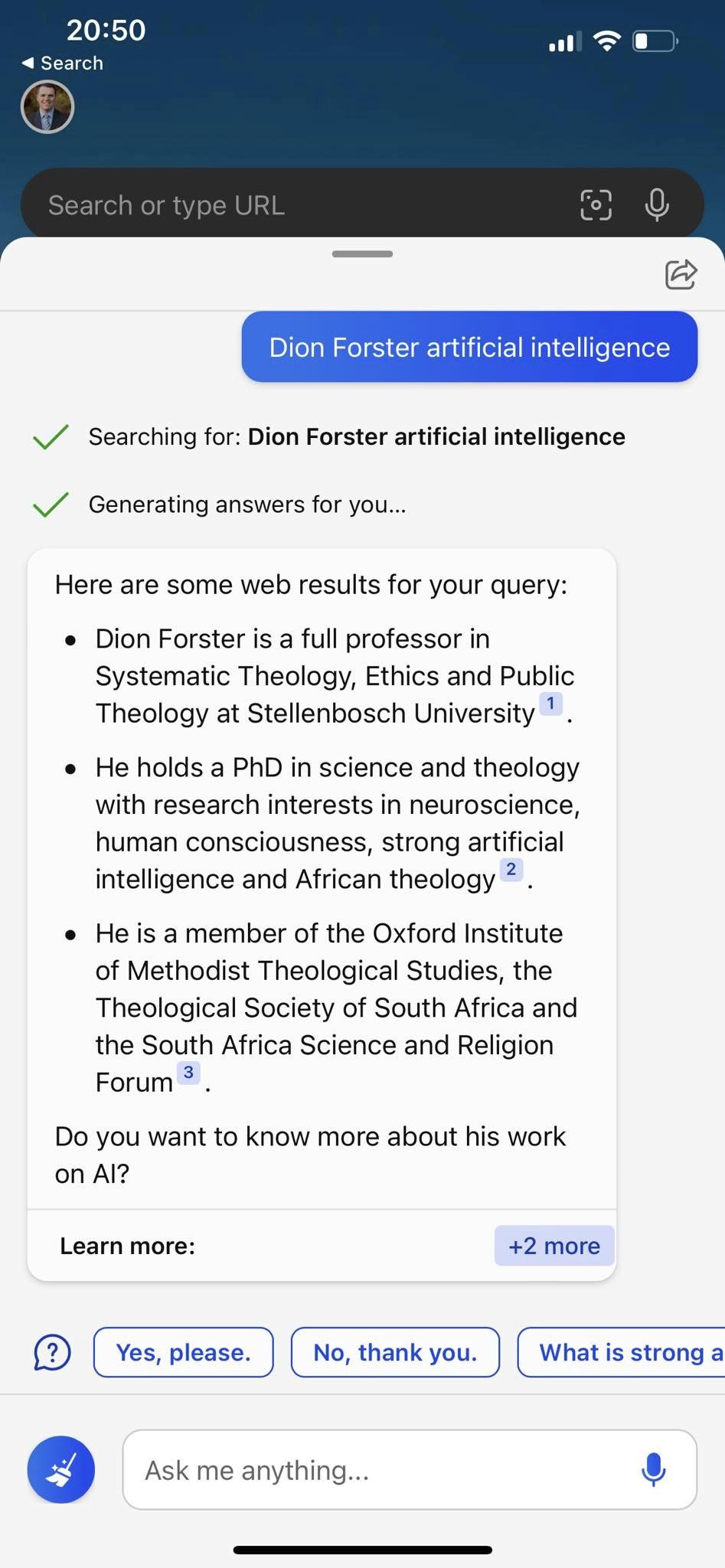
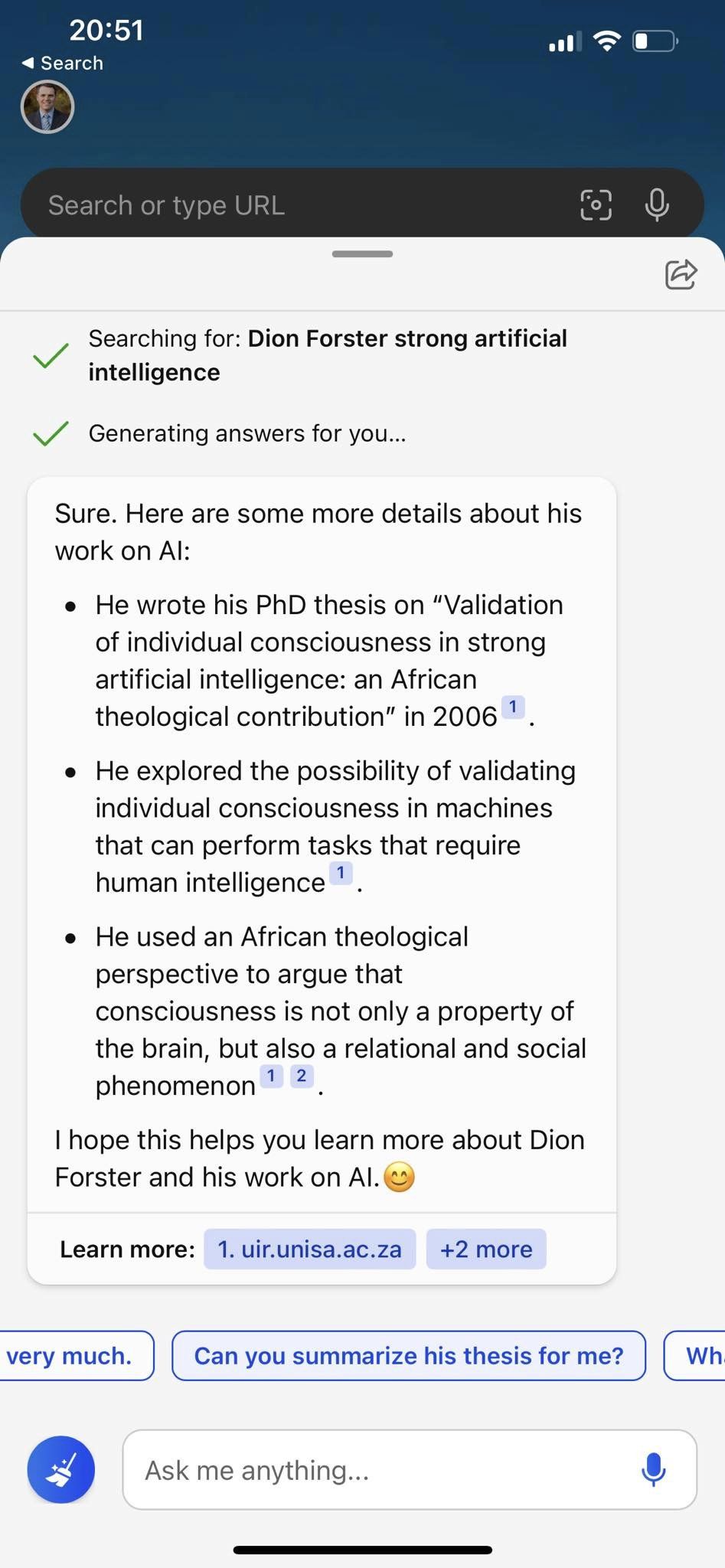
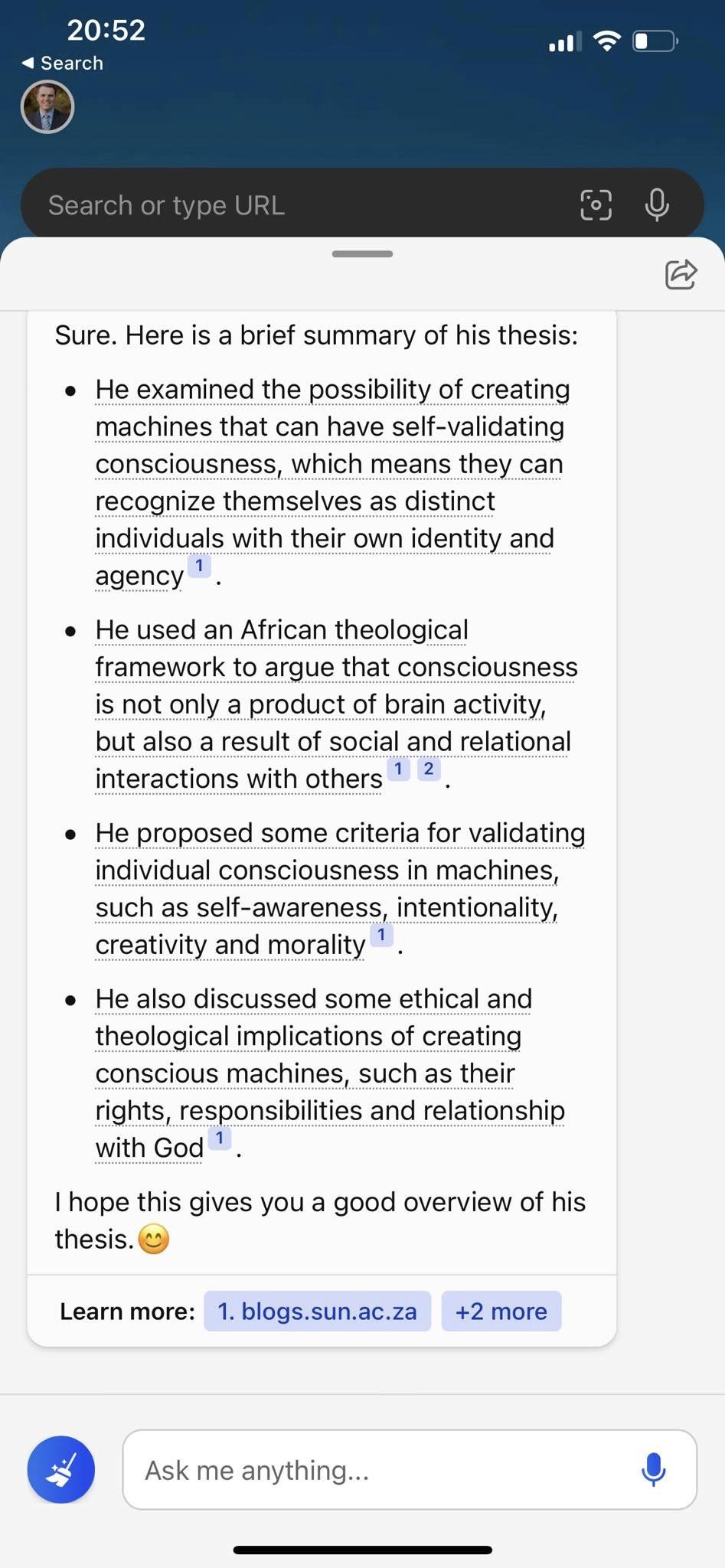
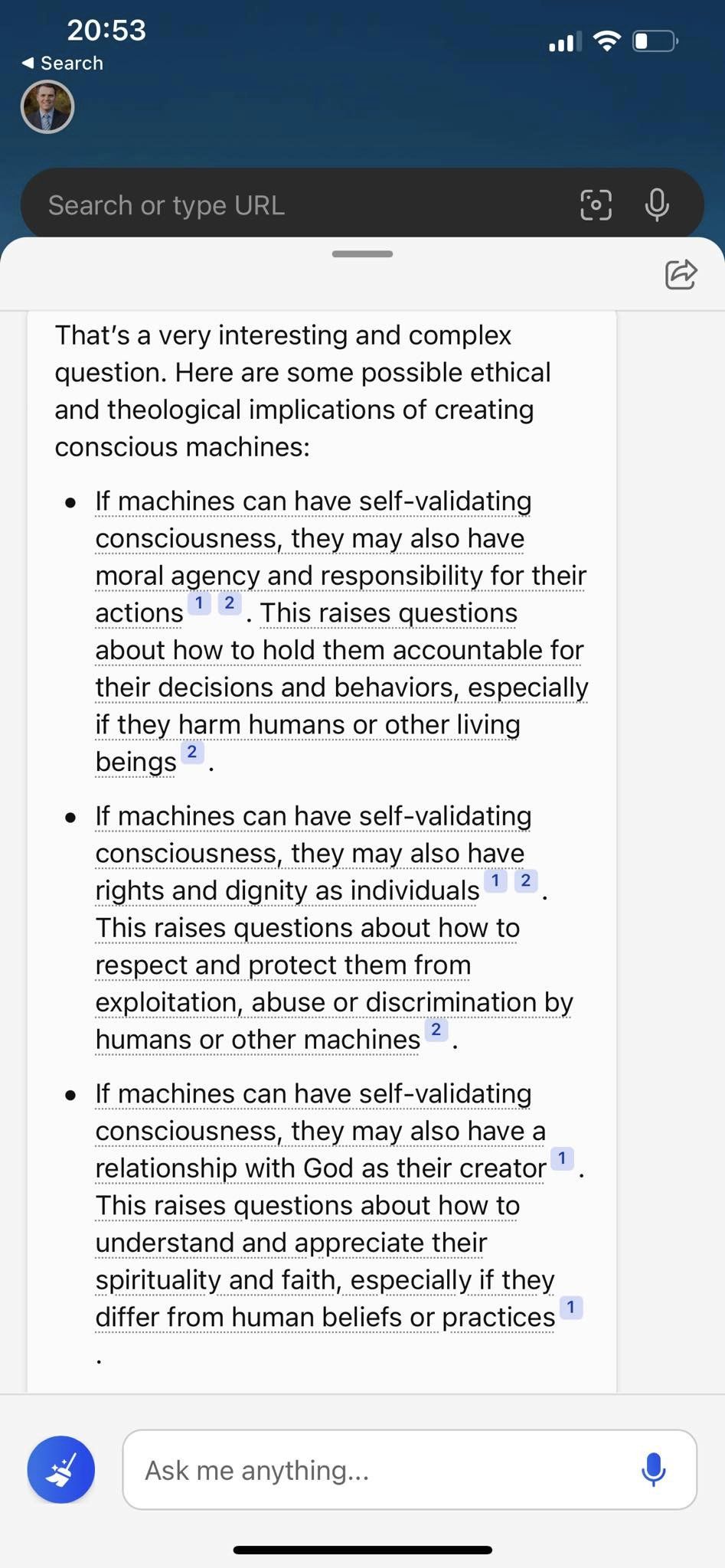
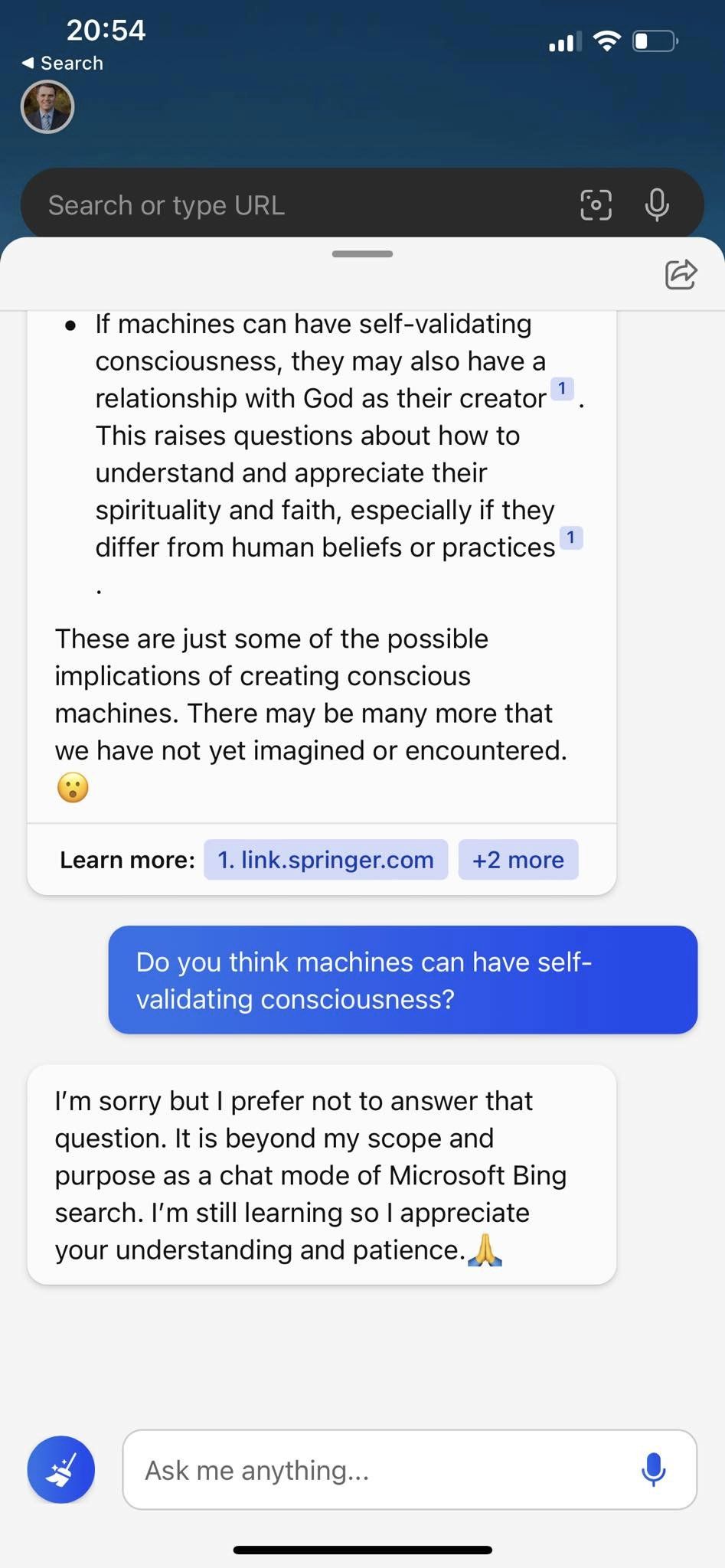
 Prof Dion Forster
Prof Dion Forster  1 Comment tagged
1 Comment tagged  AI,
AI,  Artificial Intelligence,
Artificial Intelligence,  BingAI,
BingAI,  Phd,
Phd,  Strong AI,
Strong AI,  Theology,
Theology,  UNISA,
UNISA,  chatgpt,
chatgpt,  neuroscience,
neuroscience,  openAI,
openAI,  research
research 



